- Home
- Michael Wallace
Crow Hollow Page 4
Crow Hollow Read online
Page 4
My daughter . . .
“Prudie?” Anne said, worry touching her voice.
Prudence gave a shudder, fighting to recover her wits. “For what other purpose would Master Bailey bring an Indian if not to meet the Nipmuk and Abenaki? Peter Church knows the tongue.”
“He didn’t bring an Indian, he brought a Quaker. To be a thorn in our side. Master Bailey is here to disrupt and agitate. He’s not here out of concern for your husband, believe me.”
Prudence had no doubt some of that was true. The Crown had ever chafed at New England’s liberties. There were some in London, she knew, who blamed the colonies for the war with the natives, and suggested that King Charles should appoint a royal governor to prevent future conflagrations.
But James had known her husband. The two of them were apparently confidants. Benjamin had mentioned the man on several occasions—the two of them had served the king together while in France—and she’d once caught a glimpse of a letter back to London addressed from her husband to Master Bailey.
“I have to take a chance.”
“I wish you wouldn’t agitate yourself.”
“They never should have made me take that chapter out. It was the truth.”
“It was speculation,” Anne said. “Later proven false. Men saw your daughter dead—they reported the sad truth.”
“Those men were Nipmuk. They were in turn killed, and we have their testimony from white men.”
“How does that make a difference?”
“If Mary is dead, then what happened to her body?”
“I don’t know. You know how the savages behaved—your own words are testimony enough. They tortured and maimed. Even ate them, the brutes.”
“They tortured men,” Prudence said firmly, “never children.”
“You’re telling me they didn’t kill children?”
“Well, yes,” Prudence admitted. “But not like that, not once they’d taken the children prisoner. That isn’t their way.”
Anne fixed her with a look, and Prudence closed her mouth. Her memories of captivity were brutal, horrific, but occasionally mixed with moments of surprising kindness, even civility. She’d tried to call forth that contradiction with her weak, imperfect writing, a narrative that had gripped the colonies. But what the people read eagerly by candlelight, shared from home to home, was not her full story. Men—the reverend, the printer in Boston—had taken out parts. They didn’t fit, didn’t make sense. Those things, the men presumed, were the product of a fevered mind, confused into error by the horror of her experience.
“Is it your only copy of the missing pages?” Anne asked at last.
“Yes. I have never copied them.”
“Then that will be the end of it.”
“You think so?”
“Master Bailey is a servant of the Crown. Even if he believes you, he has no time or interest in chasing down the fancies of a grieving widow and mother.”
“I hope you’re wrong. I hope he’s not so mercenary and unfeeling as that. But if you’re right, if he tosses them in the fire with a laugh, it’s still all here.” Prudence tapped her head. “I’ll write it down fresh.”
Anne sighed. “Prudie, it has been almost a year.”
“Make it ten,” Prudence said stubbornly. “I don’t care.”
“A year is enough. You’re still young and pretty. There are men in Boston in want of a wife. Good men, strong men. Some even strong enough to rule you with a light touch.”
Anne said it with a smile in her voice. Surely, she meant no malice, only to gently point out what they both knew already, that Prudence was headstrong and stubborn to a fault. But the younger sister bristled nonetheless.
Anne put an arm around her shoulder. “Don’t be angry. I know what you’ve lost. The Lord has blessed me beyond measure, but even I lost two little ones to the pox. I ache for them every day. But don’t let the loss of one child keep you from the blessings of many.”
“This is different. Mary is still alive.”
Anne started to say something else, but the stairs creaked. Reverend Stone appeared on the other side of the room.
“What is this? Why aren’t you in bed?”
Prudence couldn’t answer that without lying, so she shut her mouth and braced herself for another interrogation.
“Prudie couldn’t sleep,” Anne said with scarcely a second of hesitation. “She’s troubled by thoughts of the war. I heard her and came to offer comfort.”
“Very well, but it’s cold down here, and we rise early for the Sabbath. To bed, both of you.”
He turned and creaked his way back up the stairs. Anne kissed Prudence’s forehead. “Time for bed, little sister.”
The younger woman followed, shock warring with elation that her sister had lied to her husband to keep Prudence’s secret.
CHAPTER FOUR
James stood in front of the meetinghouse with his cloak held tight against the cold, but his hood swept back so he could get a full view of the people filing in through the wide wooden doors. He leaned against the pillory—empty, of course, because of the Sabbath. Next to it were stocks and a whipping post. A few blocks away, the town bell rang solemnly through the cold morning air, calling people to services.
A sober crowd filed past. Men and women with hoods, wool caps, felted hats, and heavy overcoats made their way through the wide wooden doors into the meetinghouse. And children. So many children. They carried muffs and wore thick mittens, with almost every inch covered.
The men, women, and children gawked at the two strangers by the door. They stared especially hard at the Indian.
It was a prompt crowd, and shortly the steady stream of people had ended, save for a few stragglers. The deacon at the door gave them a look. James held up a finger to urge patience.
“That was a spectacle thou madest of us,” Peter said as the deacon turned away.
“I’m an agent of the Crown. I won’t skulk around in secret.”
“Purposefully courting danger, ’twould seem. Especially for me.”
“A risk you accepted when I hired you. Too late for regrets now.”
“Nay, I have no regrets. But I cannot help but feel trepidation as I enter the house of mine enemy.”
“Fatalistic nonsense,” James said, but good-naturedly. “You won’t be murdered in church.”
“Art thou ready to enter?”
“One moment.”
The Third Church meetinghouse sat on a hillock overlooking the Boston Harbor. It was a simple square box, with only its greater size and the modest steeple setting it apart from the dozens of block-shaped houses around it. A road cut down the hillside toward the harbor, where dozens of ships swayed against a brutal wind that knifed off the North Atlantic. The Charles River flowed to the northwest, bisecting fields and pasture. A narrow neck held Boston itself off from the mainland, which from this height and distance presented a vast forest, broken here and there by small villages.
James studied the last few people entering the meetinghouse. He’d spotted several of the other men who had confronted them yesterday at the wharves, but no Samuel Knapp. He must belong to another parish, unless he’d arrived early.
James and Peter entered to find the members crowding the pews. The women and young children sat together on one side of the chapel, the men and boys on the other. The better sort of men sat up front, including several tall fellows with flowing hair and clothing that was a little neater, a little newer. Magistrates, merchants, and deputies. Members of the General Court. Many servants stayed together, while others sat with their respective masters and mistresses. A dozen or so slaves and indentured servants—mostly, but not all, Africans or Indians—sat in a knot at the back of the room.
“The Lord sorrows at the folly of His children,” Peter said with a sigh.
James didn’t know which of the many curiosities had aroused the Indian’s pique, and he didn’t care. Instead of questioning the man, he found a place directly across the aisle from Good
wife Stone and her daughters and forced his way in. There were already men there, but he urged them aside. They complied with some grumbling.
Reverend Stone stood at the pulpit. He was dressed no differently from his parishioners. The man watched James and Peter until they’d settled in, then nodded to the deacon, who closed and barred the doors against further entry.
Stone prayed with the congregation, then called up the deacon. This was a young man in his midtwenties, about the same age as James, but he carried himself with a stiff air like one much older. James pegged him as a self-important windbag. The members sat up a little straighter, and the children stopped fidgeting and whispering. Something interesting was about to happen.
Now that their attention was gathered up front, James no longer faced the surreptitious glances of half the assembly, and he took the opportunity to look around. Lucy Branch and her sister sat with several other servant girls a few rows behind and to the side. She stared at the deacon and licked her lips as if nervous.
He scrutinized Goodwife Stone and her family. A younger woman sat to the left of the goodwife, one of the Stone toddlers on her lap, her finger in the child’s mouth to pacify him. On first glance, James had taken her for a servant, but now he was less certain. Who was she? Too young to be a sister. Too old to be one of the Stone daughters.
She turned her face slightly, and James got a better view. It was the beautiful young woman with the raven curls who had appeared with Lucy’s sister yesterday when James and Peter first arrived. Of course. That was Widow Cotton. She had to be.
The deacon cleared his throat. “Goodman Miller, please rise.”
A man rose from the congregation. Across the aisle from him, a woman looked down at her lap. Half a dozen children with her gaped across at what could only be their father.
“You were reported drunk last Tuesday. Have you anything to say for yourself?”
“No, Deacon. I was weak and fell into error.”
“Two hours in the pillory.” A note of triumph in the deacon’s voice. “Goodwife Brockett. Rise.”
A woman rose, but, unlike Goodman Miller, she seemed confused as she looked across at her husband. The man stared back at her, brow furrowed and worried.
“You are accused of idle gossip.”
James suppressed a snort. Gossip? May as well pillory every woman in the building.
“What gossip, Deacon?” Goodwife Brockett asked.
“About a stolen chicken. You know the incident and the conversation. It was reported by two other women.”
“Goody Thompson and Goody Hooper? But they were a party to the conversation.”
“Aye, but they confessed. You didn’t. You are being called to stand, apparently without contrition. Twenty lashes.”
“Twenty lashes? Twenty?”
Reverend Stone was standing behind the deacon’s shoulder. He’d winced visibly at the pronouncement, but now he said, “Goodwife Brockett, are you disputing the punishment or the accusation itself?”
For a moment it looked as though she would argue. Then she bowed her head. “I accept the punishment, and beg forgiveness for my error.”
Twenty lashes for gossiping about a chicken? Heaven forbid it had been a cow; they’d have given her the gallows!
James shot a glance at Peter to see if any of this was inspiring the Quaker to disrupt the meeting, but Peter only wore a neutral expression, none of the glowing fervor that James had seen on board, indicating that the inward light—or whatever it was called—was working its power.
There were five more accusations. One man, a widower, was accused of improper advances toward his servant girl—here James glanced at Lucy to see her eyes widening in a guilty way, as if she were expecting to be called up herself—but the wrongdoer only got three hours with his legs clamped in the stocks and a fine of ten shillings to be paid directly to the aggrieved girl. His confession seemed to be the deciding factor in the lightness of the sentence.
Two men stood accused of Sabbath violations, and another woman of gossip. Unlike Goodwife Brockett, she suffered nothing more than a public denunciation, perhaps because she was an unmarried girl, or maybe simply because she seemed fully contrite. The harshest punishment fell on the last man, who was accused of profanity, apparently muttering, “The devil scald you!” to one of the deacons of the church. Most damning of all was that he was not present at the meeting. This earned him twenty lashes, four hours in the pillory, and a nasty fine to boot.
James’s English sensibilities had been shocked by the licentious French court, but this was shocking in a more disturbing way. Ah, to be in Paris or Versailles again. Preferably in spring, when the flowers were in bloom. Instead, he was stuck in this coldest, most stiff-necked English outpost in the darkest time of the year.
After that bit of excitement, the Puritan meeting settled into a tedious affair. There was none of the beauty and majesty of an Anglican service. Instead, a lot of parish business, some psalms sung without accompaniment, verse, or even someone to keep time, just a lot of warbling out of tune, and then an interminable sermon. Even the building itself was dull. No crosses, no stained-glass windows, no beauty to the vaults. All strictly functional.
Reverend Stone began his sermon with an anecdote about a man who paid his tithes, who kept the Sabbath, who didn’t blaspheme or bear false witness or commit adultery. Yet he was speedily on his way to hell nonetheless. For you see, in his heart he was a secret whoremonger, committing every crime from buggery to blasphemy.
Some twenty minutes later, James was dozing off, idly daydreaming about getting his hands on Widow Cotton, when Peter stiffened next to him. James’s eyes opened, and he was instantly alert. The Indian gripped the pew in front of him, knuckles white. A peculiar light had entered his eyes.
This was it. The disruption James had been seeking.
Reverend Stone continued. “These troubles with King Philip and his savages are a warning voice from the Lord. We set ourselves to be a city on a hill, yet Boston Town—the entirety of New England, even—has become no more holy, no more Godly, than any other blighted corner in Christendom.”
Peter rose to his feet. “You are wrong, friend!”
A gasp and a visible shudder worked its way through the congregation as dozens of heads turned to stare. Seemingly stunned, Stone could only gape.
James had known Peter’s reputation before hiring the man to return to his native New England. He’d even seen it on the ship, when Peter had interrupted the services held for the crew. But to see it here, in the midst of so many sober and devout Puritans, was staggering. An Indian and a Quaker—and in the aftermath of the Indian war too.
“Pray sit down,” Reverend Stone said, recovering. “There shall be no contention here.”
He sounded remarkably calm, considering that angry mutters were passing through his flock and a few men rose tentatively to their feet.
“God’s judgment is upon these people, that much we agree on,” Peter said. “But not for backsliding. Not for secret whoredoms or witchcraft.”
“Both of which you are well accustomed to, I am sure,” a woman said.
Angry assent mixed with scattered, nervous laughter. The speaker was Goodwife Brockett, the one so recently condemned for her gossiping.
“Thou hast cast out the servants of the Lord,” Peter said. His voice was strong and unwavering and easily cleared the growing noise. “The Society of Friends came to share with thee truth and light. Thy people, proud and hard of heart, have put these Friends to death, driven them from New England.” Peter’s expression hardened. “And thou hast defrauded and persecuted the native sons of this land. Those who hunger and thirst for truth have been given gall to drink and hot lead for their supper. Their blood cries up from the soil against thee.”
“Have respect, Master Church,” Stone said. “Men in this room have lost brothers to the savages. Women, their sons. Entire families murdered in Medford, Andover, Winton, Sudbury, their children cruelly tortured and killed.�
�
“And entire nations lie slaughtered under your swords,” Peter answered. “Families burned alive in their homes. Is there a soul in this room who doesn’t know the fate of the Narragansett? The Nipmuk? Are there not men present who did the killing at Crow Hollow? Let them answer now for their crimes.”
“And I’d do it again!” a man shouted. It was Samuel Knapp, now rising from the front pews. “Bring me a pistol and ball, and I’ll see one more Indian put down like a mad dog.”
“You are a heretic and a savage,” another man cried at Peter.
“Please!” Stone cried. “All of you, be calm.”
The reverend waved his hands and called the people to restrain themselves, but his words drowned under a rising tide of shouting men, and children now bursting into wails.
It was all working better than James had hoped. As Peter continued to call the Puritans to repentance, and the accused shouted back and shook their fists, James edged out of the pew, though not without a twinge of guilt at abandoning Peter.
Cooler heads—mostly women—hustled children out of the meetinghouse. James helped Goodwife Stone get her youngest children out of the pew, then caught Sir Benjamin’s widow by her sleeve as she brushed past.
“Prudence Cotton?” he said, struggling to be heard over the tumult.
She turned to him, startled. “Master Bailey.”
“I must see you, alone.”
“Let me go.”
“Meet me at the Common at dusk. You must be there, do you understand?”
“No, I won’t do it. Unhand me.”
She jerked free and hurried off after her sister and the little ones. Damn. Well, it had been worth a try.
A scuffle at his rear drew James’s attention. Two men had climbed over the pew and were struggling with another man, who was trying to protect Peter from violence. Or no, he was trying to get at the Indian himself, trying to tear loose Peter’s grip from the pew in front of him. Peter stood with a placid look, doing nothing more than trying to hold his ground while continuing to argue in a loud tone. His words were incomprehensible through the din.

 Crowlord (The Sword Saint Series Book 2)
Crowlord (The Sword Saint Series Book 2) Crowlord
Crowlord The Red Sword- The Complete Trilogy
The Red Sword- The Complete Trilogy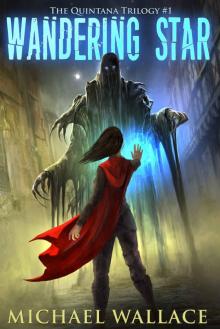 Wandering Star (The Quintana Trilogy Book 1)
Wandering Star (The Quintana Trilogy Book 1) Bladedancer
Bladedancer Sword Saint
Sword Saint The Alliance Trilogy
The Alliance Trilogy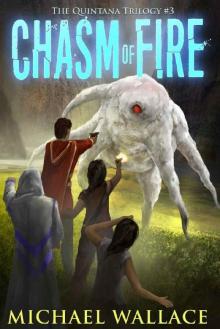 Chasm of Fire
Chasm of Fire Bladedancer (The Sword Saint Series Book 4)
Bladedancer (The Sword Saint Series Book 4) The Devil's Deep
The Devil's Deep Shadow Walker (The Sword Saint Series Book 3)
Shadow Walker (The Sword Saint Series Book 3) Starship Blackbeard
Starship Blackbeard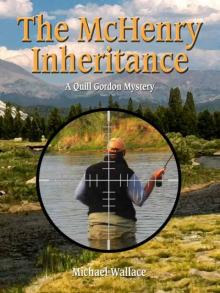 The McHenry Inheritance (Quill Gordon Mystery Book 1)
The McHenry Inheritance (Quill Gordon Mystery Book 1) Sun King (The Void Queen Trilogy Book 3)
Sun King (The Void Queen Trilogy Book 3)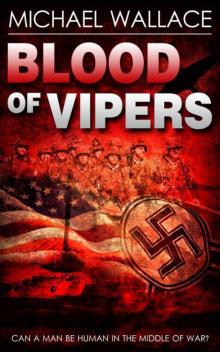 Blood of Vipers
Blood of Vipers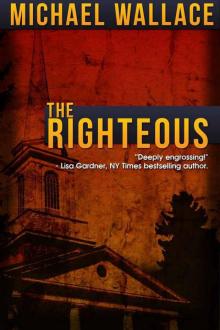 Righteous - 01 - The Righteous
Righteous - 01 - The Righteous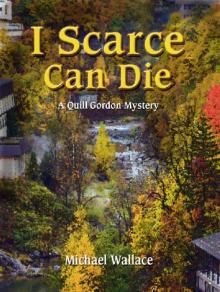 I Scarce Can Die (Quill Gordon Mystery Book 5)
I Scarce Can Die (Quill Gordon Mystery Book 5) The Devil's Cauldron
The Devil's Cauldron The Wicked (The Righteous)
The Wicked (The Righteous)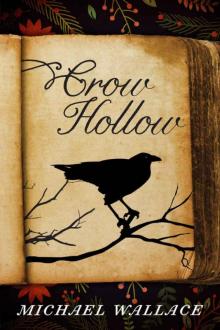 Crow Hollow
Crow Hollow Righteous03 - The Wicked
Righteous03 - The Wicked Righteous02 - Mighty and Strong
Righteous02 - Mighty and Strong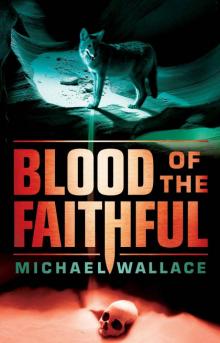 Blood of the Faithful
Blood of the Faithful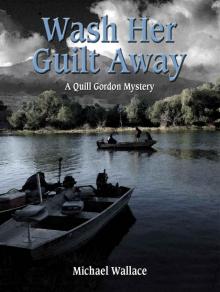 Wash Her Guilt Away (Quill Gordon Mystery Book 2)
Wash Her Guilt Away (Quill Gordon Mystery Book 2) The Kingdom of the Bears
The Kingdom of the Bears The Emerald Crown (The Red Sword Trilogy Book 3)
The Emerald Crown (The Red Sword Trilogy Book 3) The Dark Citadel
The Dark Citadel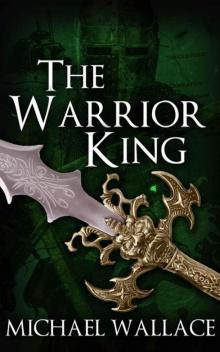 The Warrior King (Book 4)
The Warrior King (Book 4) Rebellion of Stars (Starship Blackbeard Book 4)
Rebellion of Stars (Starship Blackbeard Book 4)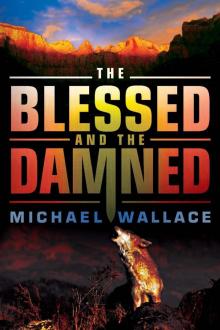 Righteous04 - The Blessed and the Damned
Righteous04 - The Blessed and the Damned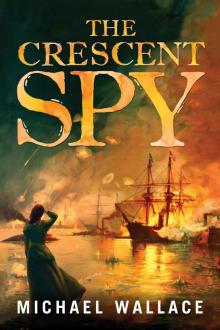 The Crescent Spy
The Crescent Spy Queen of the Void (The Void Queen Trilogy Book 1)
Queen of the Void (The Void Queen Trilogy Book 1) The Red Sword (The Red Sword Trilogy Book 1)
The Red Sword (The Red Sword Trilogy Book 1) The Sentinel (The Sentinel Trilogy Book 1)
The Sentinel (The Sentinel Trilogy Book 1) The Golden Griffin (Book 3)
The Golden Griffin (Book 3)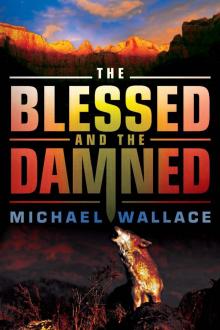 The Blessed and the Damned (Righteous Series #4)
The Blessed and the Damned (Righteous Series #4) Hell's Fortress
Hell's Fortress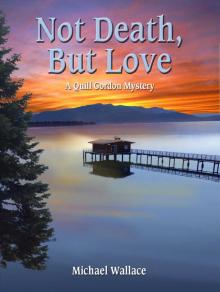 Not Death, But Love (Quill Gordon Mystery Book 3)
Not Death, But Love (Quill Gordon Mystery Book 3) Destroying Angel
Destroying Angel The Free Kingdoms (Book 2)
The Free Kingdoms (Book 2) Dragon Quadrant (The Sentinel Trilogy Book 2)
Dragon Quadrant (The Sentinel Trilogy Book 2) Shattered Sun (The Sentinel Trilogy Book 3)
Shattered Sun (The Sentinel Trilogy Book 3)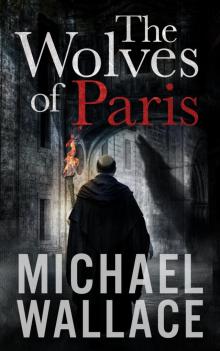 The Wolves of Paris
The Wolves of Paris Lords of Space (Starship Blackbeard Book 2)
Lords of Space (Starship Blackbeard Book 2) Dreadnought (Starship Blackbeard Book 3)
Dreadnought (Starship Blackbeard Book 3)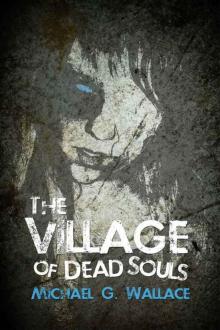 The Village of Dead Souls: A Zombie Novel
The Village of Dead Souls: A Zombie Novel The Black Shield (The Red Sword Book 2)
The Black Shield (The Red Sword Book 2)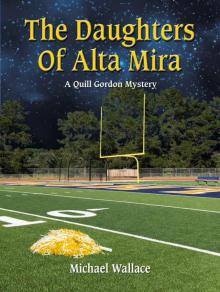 The Daughters Of Alta Mira (Quill Gordon Mystery Book 4)
The Daughters Of Alta Mira (Quill Gordon Mystery Book 4) Mighty and Strong (The Righteous)
Mighty and Strong (The Righteous)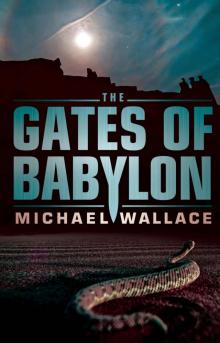 The Gates of Babylon
The Gates of Babylon